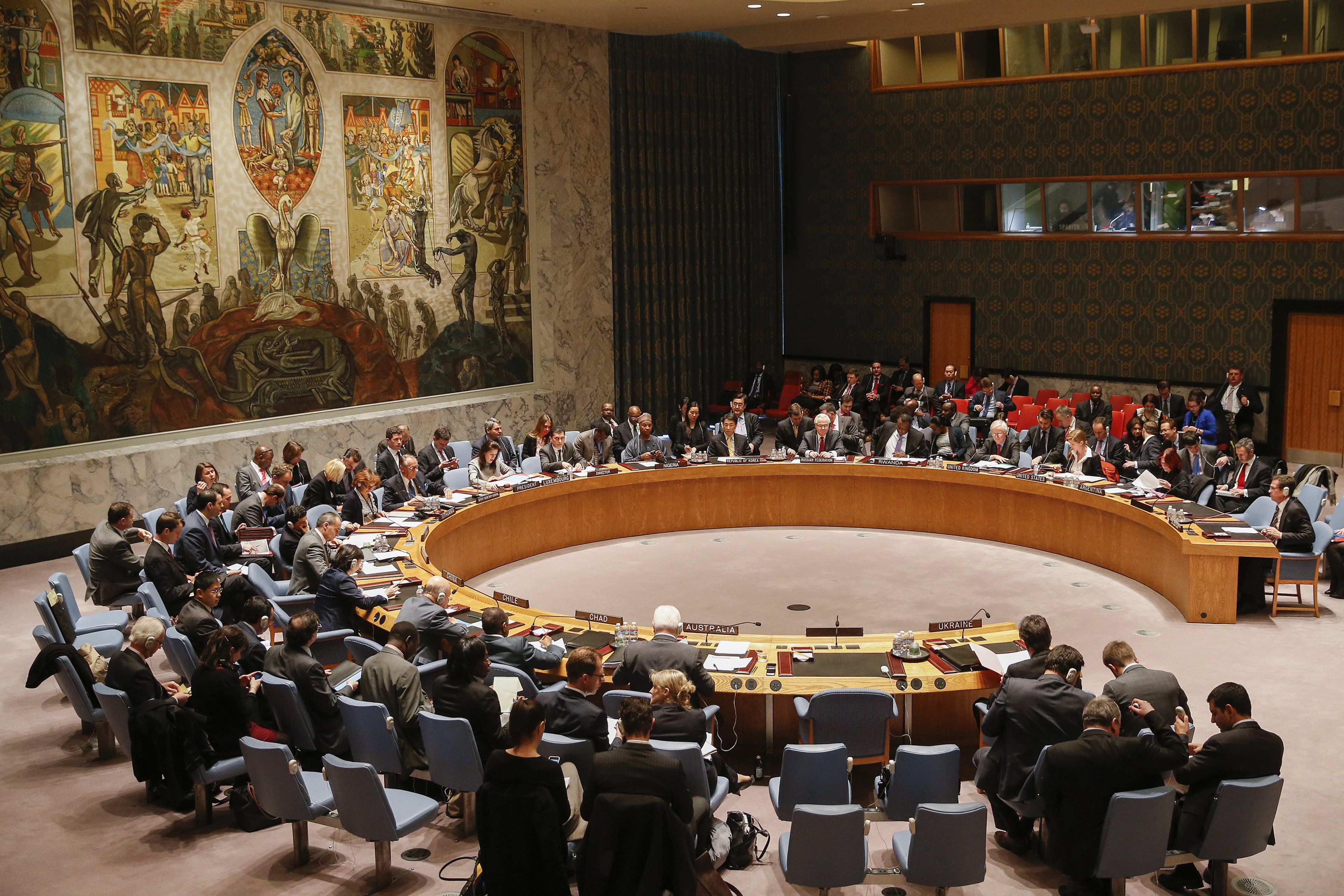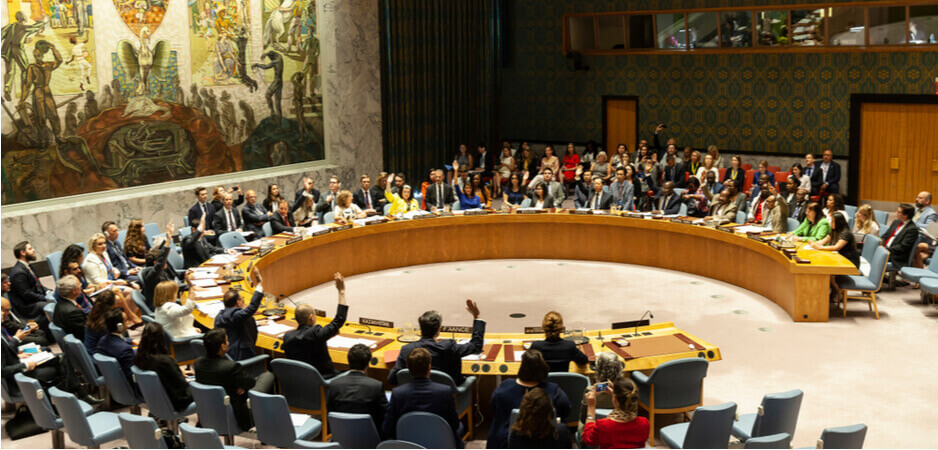The Security Council in United Nations
On October 24, 1945, the victors of World War II — China, the U.S.S.R., France, the United Kingdom, and the United States — ratified the UN Charter, creating the Security Council and establishing themselves as its five permanent members with the unique ability to veto resolutions.
Author:Dexter CookeReviewer:Hajra ShannonMar 09, 202148.5K Shares1.4M Views

On October 24, 1945, the victors of World War II — China, the U.S.S.R., France, the United Kingdom, and the United States — ratified the UN Charter, creating the Security Council and establishing themselves as its five permanent members with the unique ability to veto resolutions. Originally there were six temporary members, rotating every two years and distributed on an equitable geographic basis. That rule was more explicitly defined in 1965, when the number of temporary members was increased to ten (five from Africa and Asia, one from Eastern Europe, two from Latin America and the Caribbean, and two from Western Europe). The first temporary members were Australia, Brazil, Egypt, Mexico, the Netherlands, and Poland.
The charter also established the purpose of the council, to “investigate any dispute, or any situation which might lead to international friction or give rise to a dispute, in order to determine whether the continuance of the dispute or situation is likely to endanger the maintenance of international peace and security” and to act accordingly, by:
- Investigating any situation threatening international peace;
- Recommending procedures for peaceful resolution of a dispute;
- Calling upon other member nations to completely or partially interrupt economic relations as well as sea, air, postal, and radio communications, or to sever diplomatic relations; and
- Enforcing its decisions militarily, if necessary.
On January 17, 1946, the Security Council met for the first time in London. The first UN peacekeeping mission was deployed in 1948 to the Middle East; there have been 60 more. Over the last 60 years, the Security Council has taken action to defuse innumerable international crises, the most recent of which include those in North Korea, Iran, and Lebanon.
Membership Reform
There have been frequent calls to reform the membership of the UN Security Council, most of which include accepting Japan, Germany, India, and Brazil (known as the G4) as permanent members. Japan and Germany are the second and third largest contributors to the UN budget respectively. India is a nuclear power, the world’s largest democracy, and the second most populous nation. Brazil is the largest, most populous, and most prosperous nation in Latin America. The United Kingdom, France, and Russia are said to support permanent G4 membership on the Security Council. The Bush Administration has said that it supports Japan’s bid.
In addition to the proposal to make the G4 permanent members of the Security Council, there have been several other proposals floated by various groups and individual countries, none of which have met with positive response from the Security Council.
Jump to

Dexter Cooke
Author
Dexter Cooke is an economist, marketing strategist, and orthopedic surgeon with over 20 years of experience crafting compelling narratives that resonate worldwide.
He holds a Journalism degree from Columbia University, an Economics background from Yale University, and a medical degree with a postdoctoral fellowship in orthopedic medicine from the Medical University of South Carolina.
Dexter’s insights into media, economics, and marketing shine through his prolific contributions to respected publications and advisory roles for influential organizations.
As an orthopedic surgeon specializing in minimally invasive knee replacement surgery and laparoscopic procedures, Dexter prioritizes patient care above all.
Outside his professional pursuits, Dexter enjoys collecting vintage watches, studying ancient civilizations, learning about astronomy, and participating in charity runs.

Hajra Shannon
Reviewer
Hajra Shannona is a highly experienced journalist with over 9 years of expertise in news writing, investigative reporting, and political analysis.
She holds a Bachelor's degree in Journalism from Columbia University and has contributed to reputable publications focusing on global affairs, human rights, and environmental sustainability.
Hajra's authoritative voice and trustworthy reporting reflect her commitment to delivering insightful news content.
Beyond journalism, she enjoys exploring new cultures through travel and pursuing outdoor photography
Latest Articles
Popular Articles
